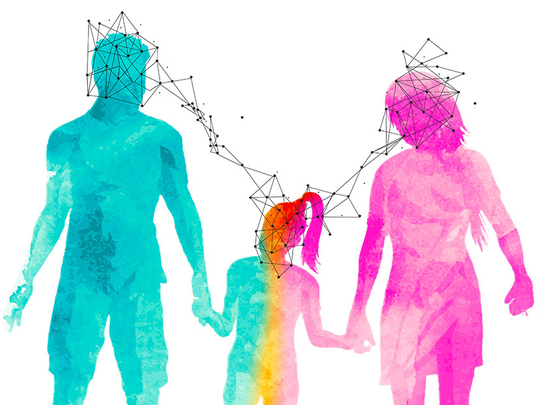
Dubai: In the giant blender of cultures that is the UAE, do you form deep bonds with people from other cultures? If your answer is yes, there’s good news for you. Whether romantic, social or professional, intercultural relationships born of deep associations can have a significantly positive cumulative effect on individuals, according to a study.
The research, “Going Out” of the Box: Close Intercultural Friendships and Romantic Relationships Spark Creativity, Workplace Innovation, and Entrepreneurship, was published in the Journal of Applied Psychology, a premier journal of the American Psychological Association.
Conducted by researchers at INSEAD and Columbia Business School, the study’s findings showed that “intercultural relationships can provide the cultural learning that shapes both the content and the processes of creative cognition”, Andy Hafenbrack of Católica-Lisbon School of Business and Economics, co-author of the research, told Gulf News.
Hafenbrack explained that intercultural ties not only facilitate the flow of new information from intercultural partners, but also signal general open-mindedness to observers from the home culture, who in turn are more likely to share content with the subject.
Superficial ties
On the obverse, shallow or superficial inter-cultural relationships or interactions do not lead to the same effect, the study said. Hafenbrack pointed out that the notion that intercultural relationships can expand an individual’s creative capacity is also supported by the self-expansion theory. “The [self-expansion] theory suggests that the shared experiences afforded by social relationships can lead individuals to integrate the perspectives, traits, and identities of their counterparts into their own self-concepts,” he said.
Again, this exchange is only seen in deep connections, as shallow relationships don’t result in the same effect.
The research also concludes that individuals looking to improve their creativity should actively seek opportunities that allow them “to step outside their cultural comfort zone”.
While workplace intercultural connections may run deep or remain shallow, one area where interculturalism develops strong roots is in mixed marriages. With over 200 nationalities in the UAE, multicultural couples are increasingly common in the country as many families reach out to embrace values such as tolerance, understanding and bi-culturalism.
Dr Jamila Motala, clinical psychologist at Light House Arabia in Dubai, describes multicultural families as “a fusion of diversity, represented by different features such as nationality, religion, language, social customs, behaviour and values.”
In a mixed marriage, for instance, there are high chances of the children growing up bilingual. “Research has identified that bilingual people show an increased ability to shift attention, shift between tasks and solve problems more easily. This is believed to be due to the efficiency of the executive control functioning of the brain,” Dr Motala said.
Shallow bonds vs Deep connections
Shallow bonds
If intercultural relationships in the workplace are merely functional, and hence ‘ shallow’, they do not yield the benefits, say experts.
Time and effort
“The reason shallow cross-cultural relationships do not enhance creativity is that it takes time and effort to learn a new culture. If we fall in love with someone from another culture or they are our close friend, we naturally want to learn more about them, where they came from, and how they think. We also share more of who we are, and they share more of who they are in the process.”
No significant revelations
“If we have shallow acquaintances from another culture, it is unlikely that we spend enough time with them to learn their culture, and it is also unlikely that either person will reveal enough about who they are and how they view the world to communicate their cultural perspective.”
Fleeting impressions
“If people from different cultures are working in the same office but they do not behave like friends or communicate beyond their work tasks and pleasantries, it is less likely that they will learn each other’s cultures and that their creativity would be enhanced.”
— Andy Hafenbrack of Católica-Lisbon School of Business and Economics and co-author of the research
Deep connections
People who had deep connections with someone from another culture experience growth in creativity — but this creative boost does not occur when people only have shallow connections with people from other cultures, say experts.
“For example, we have consistently found that people who have lived abroad have an increase in creativity, but travelling abroad has very little effect. The deeper your connection, the deeper your understanding of the other culture, the more creative you’re going to become.”
The research also concludes that individuals looking to improve their creativity should actively seek opportunities that allow them to “to step outside their cultural comfort zone”.
— Adam Galinsky, Chair of the Management Division at Columbia
— Andy Hafenbrack of Católica-Lisbon School of Business and Economics and co-author of the study







